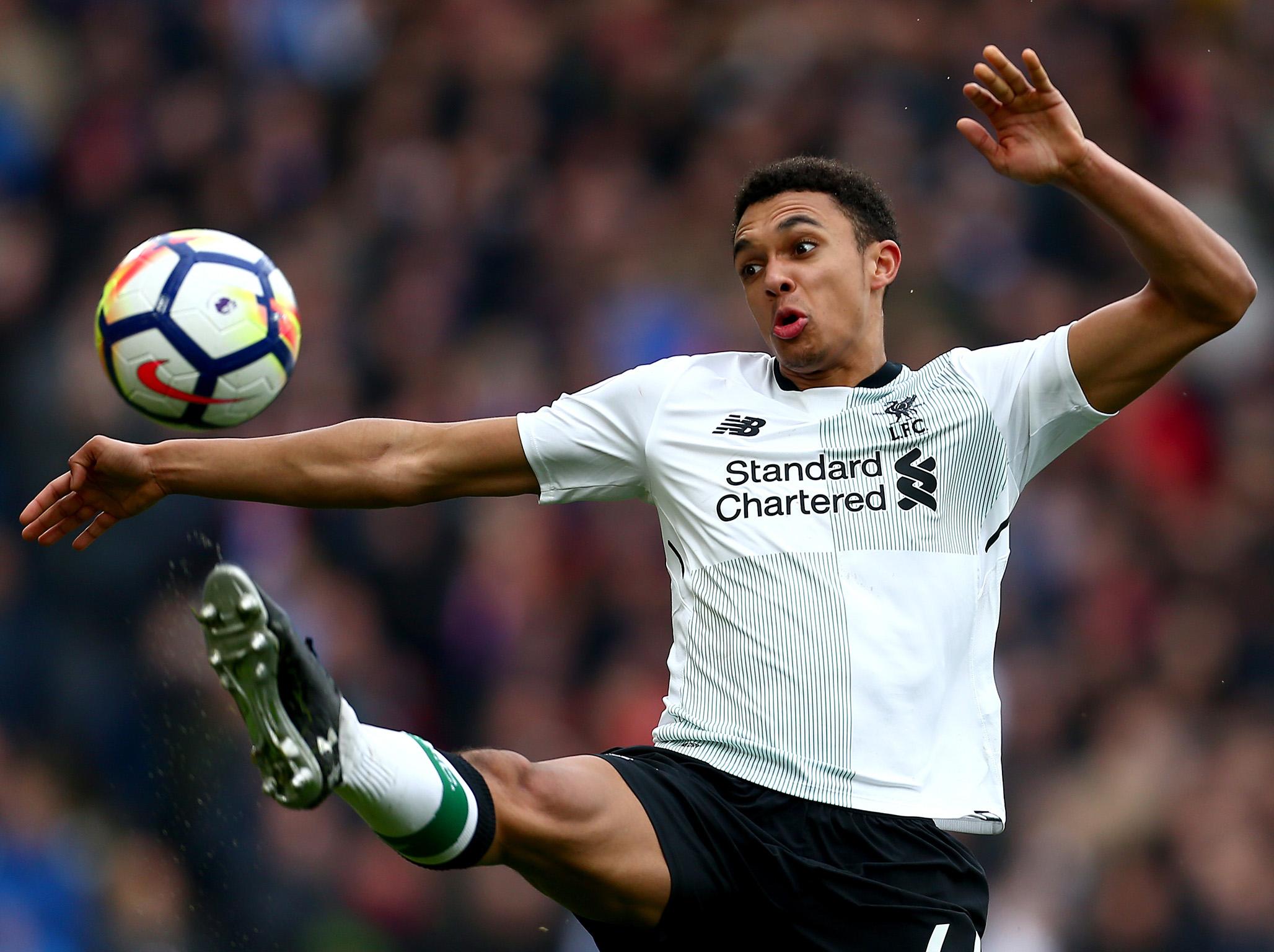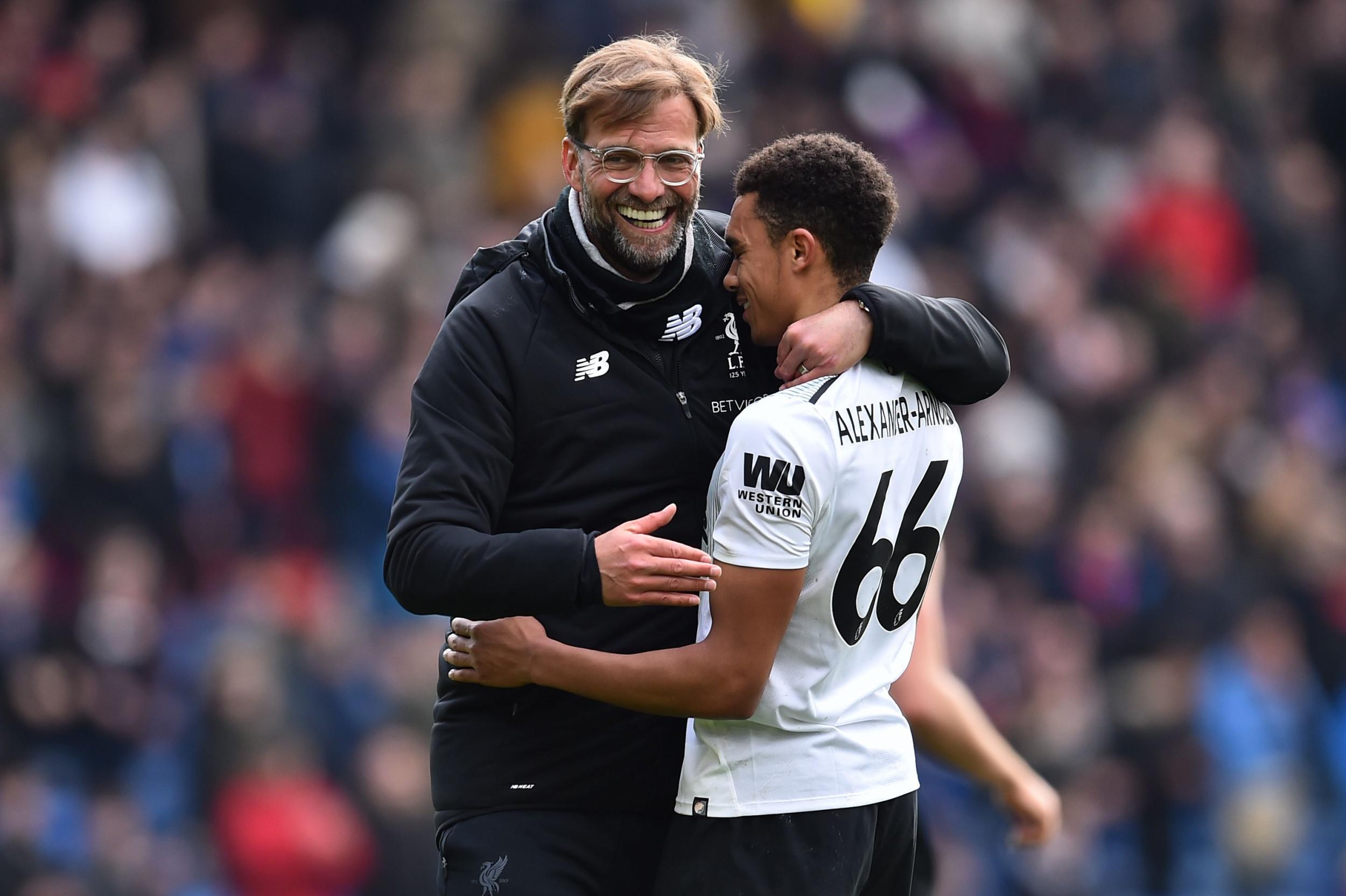Why Trent Alexander-Arnold’s Liverpudlian roots mean so much in the era of football’s global village
Alexander-Arnold certainly understands the umbilical link that a football club has with its city. Whatever Liverpool is, whatever it means: Alexander-Arnold just gets it

Your support helps us to tell the story
From reproductive rights to climate change to Big Tech, The Independent is on the ground when the story is developing. Whether it's investigating the financials of Elon Musk's pro-Trump PAC or producing our latest documentary, 'The A Word', which shines a light on the American women fighting for reproductive rights, we know how important it is to parse out the facts from the messaging.
At such a critical moment in US history, we need reporters on the ground. Your donation allows us to keep sending journalists to speak to both sides of the story.
The Independent is trusted by Americans across the entire political spectrum. And unlike many other quality news outlets, we choose not to lock Americans out of our reporting and analysis with paywalls. We believe quality journalism should be available to everyone, paid for by those who can afford it.
Your support makes all the difference.Elite football, as everyone knows these days, is a polyglot business, a league of nations, a global village. Even so, it is a point of more than tangential interest that as Liverpool and Manchester City step out for the first leg of their Champions League quarter-final on Wednesday night, it is highly likely that this very local dust-up will contain just a single local player.
That player is Trent Alexander-Arnold, perhaps the least heralded of the 22 participants, and yet in many ways the key to the whole fixture. The 19-year-old right-back would be the youngest English player ever to start a Champions League quarter-final, and if it is a testament to his skill and endeavour, then you can be sure City will also see it as an opportunity.
Alexander-Arnold was comprehensively beaten by Marcus Rashford when Liverpool travelled to Old Trafford last month, and along with his first-half display against Wilfried Zaha in the first half of the trip to Selhurst Park on Saturday, there are legitimate grounds for concern over a player whose rapid graduation from under-18 football to the first team has offered precious little time to learn his craft at the top level.
And yet, those who know Alexander-Arnold talk not only of the talent in his feet but the power between his ears: the maturity that saw him handed the captaincy of Liverpool’s under-16 side, that has seen him establish himself already as one of the most level-headed characters in the Liverpool dressing room. The word is that ultimately, Alexander-Arnold’s destiny lies not at full-back but in central midfield, a deep-lying playmaker in the mould of his boyhood idols Steven Gerrard or Xabi Alonso.
This week, Alexander-Arnold appeared as a guest on the popular Anfield Wrap supporters’ podcast. The first thing to point out is that not many clubs would let one of their players appear on an unofficial podcast, much less one of their teenage rising stars. The fact that Liverpool had no qualms about letting Alexander-Arnold go on the show says a lot about them. But it says a lot about Alexander-Arnold as well.
And to listen to Alexander-Arnold was to be reminded of his other defining quality. He is, after all, a Scouser born and raised: growing up in West Derby, just 10 minutes’ walk from Melwood, where he would go with his brothers and try to watch training through a crack in the wall. He remembers, aged six, standing on a wall outside his house and hearing the ferocious din of an open-topped bus trundling down his street, bearing the victorious 2005 Champions League-winning squad.

Playing for your hometown club, in a sport where the very idea of home is becoming a nebulous, ill-defined concept, can offer certain advantages, both on the pitch and off. Perhaps this is doubly true of Liverpool, and Alexander-Arnold certainly understands the umbilical link that a football club has with its city, its supporters, its community, its people. Whatever Liverpool is, whatever it means: Alexander-Arnold just gets it.
He still lives in the city, with his mother. He gives up his own time to a Liverpool-based charity An Hour For Others, set up by a friend of his mother’s. He still recalls the sensation he felt watching local players like Steven Gerrard and Jamie Carragher turn out for his team: the awesome power of emulation.
“When I’d go to Anfield,” he said, “I wouldn’t really watch anyone else. I’d be staring at them two. Being able to see someone in the first team who’s come up the same way that you have, played on the streets and the fields and the Sunday League pitches of Liverpool. It gives you that bit more motivation.”
We can bicker and argue over whether these origin stories genuinely matter in the scheme of things. But in a way, football without place isn’t really football at all. And to the 50,000 Liverpool fans who will line Anfield’s four stands on Wednesday night, it matters that in a local tussle in a European competition on a global stage, alongside players from Senegal and Scotland and Brazil and Egypt, in front of a German manager and American owners, they have one they can genuinely call their own.
Join our commenting forum
Join thought-provoking conversations, follow other Independent readers and see their replies
Comments